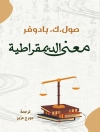Focusing on social work and social service delivery, this book examines the social policies and programmes designed to address different societal issues and concerns across India and China. It focuses on gaining understanding of design and delivery of social welfare policies related to special interest groups, highlighting important contemporary challenges such as child labour, child abuse, exploitation of women, problems related to disabled people, mental health issue, illiteracy and unemployment. Offering a comparative perspective, the book considers the impact of political administration in both countries to critically assess key issues related to social welfare in two different political, economic, social, and cultural contexts.
Jadual kandungan
Introduction: Globalization, Economic Reform and Social Welfare in India and China.-
Part I: Society and Welfare in India and China – A Comparison.- Traditions, Values and Religion: Social Welfare in India and China.- Chinese Discipline and National Pride as a Case Study for Neighbouring Countries.- Paradigm Shift in Social Work Practices in India and China- Lessons for Emerging Economies.- Land-use behavior of farming households and rural land degradation in a karst area of China.-
Part II: Child Welfare in India and China.- A CRITICAL REVIEW OF SCHOOL SOCIAL WORK IN HONG KONG.- From Care Deficit to Overbearing Care: Child Care Provision Growing Gap in China.- ‘Bereaved single-child families’ (shidu jiating): Dealing with an unintended consequence of China’s one-child policy.-
Part III: Elderly Care in India and China – Emerging Concerns.- Comparing Emerging Social Issues and Implementation of Social Policy Changes for Aged People in India and China.- Disability, Social Welfare Policy and Elderly in India and China.- Social status and subjective wellbeing of tribal elderly: A Narrative discourse.-
Part IV: Poverty in Numbers – Where India and China Stands.- Social exclusion of female Dibao recipients in urban China.- Welfare communication and poverty eradication in India, China.- Exploring Gender Segregated educational effects on income inequality, India: A Time Series Analysis.- Drought and Farmer Suicides in Marathwada: A Natural or Man-made Disaster.-
Part V: Social Problems in India and China- A comparison.- Social Policies and Institutional Arrangements for Minorities and Special Categories in India: An Overview and the Way Forward.- Higher Education in India: Trends and Challenges.- UNHCR’s populations of concern: Where does India stand?.- HIV Medication Access Between China and India on the Policy Level.- Gender and Socio-Cultural Policy Issues in Objects of Display: A Case Study of Gujarat Science City in India.- Safety and Welfare for Women in Need: A Study on the Short Stay Homes in Paravai Madurai Tamil Nadu.- International Adoption from China & India 1992-2018.- From Peasants to Social Assistance Recipients? Semi-forced Urbanization in China.- Social Welfare and Inclusive Education for Children with Disability towards Social Inclusion: Dalit Children Experience.-
Conclusion: Neoliberalism, Growing disparity and Social Welfare in India and China.
Mengenai Pengarang
Jianguo Gao is Professor in the Department of Social Work in the School of Philosophy and Social Development at Shandong University, China.
Rajendra Baikady is Golda Meir Post-Doctoral Fellow at the Paul Baerwald School of Social Work and Social Welfare, Hebrew University of Jerusalem, Israel, and Senior Research Associate at University of Johannesburg, South Africa.
Lakshmana Govindappa is Assistant Professor in the Department of Social Work in the School of Social and Behavioral Sciences at Central University of Karnataka, India.
Sheng-Li Cheng is Professor in the Department of Social Work in the School of Philosophy and Social Development at Shandong University, China.












